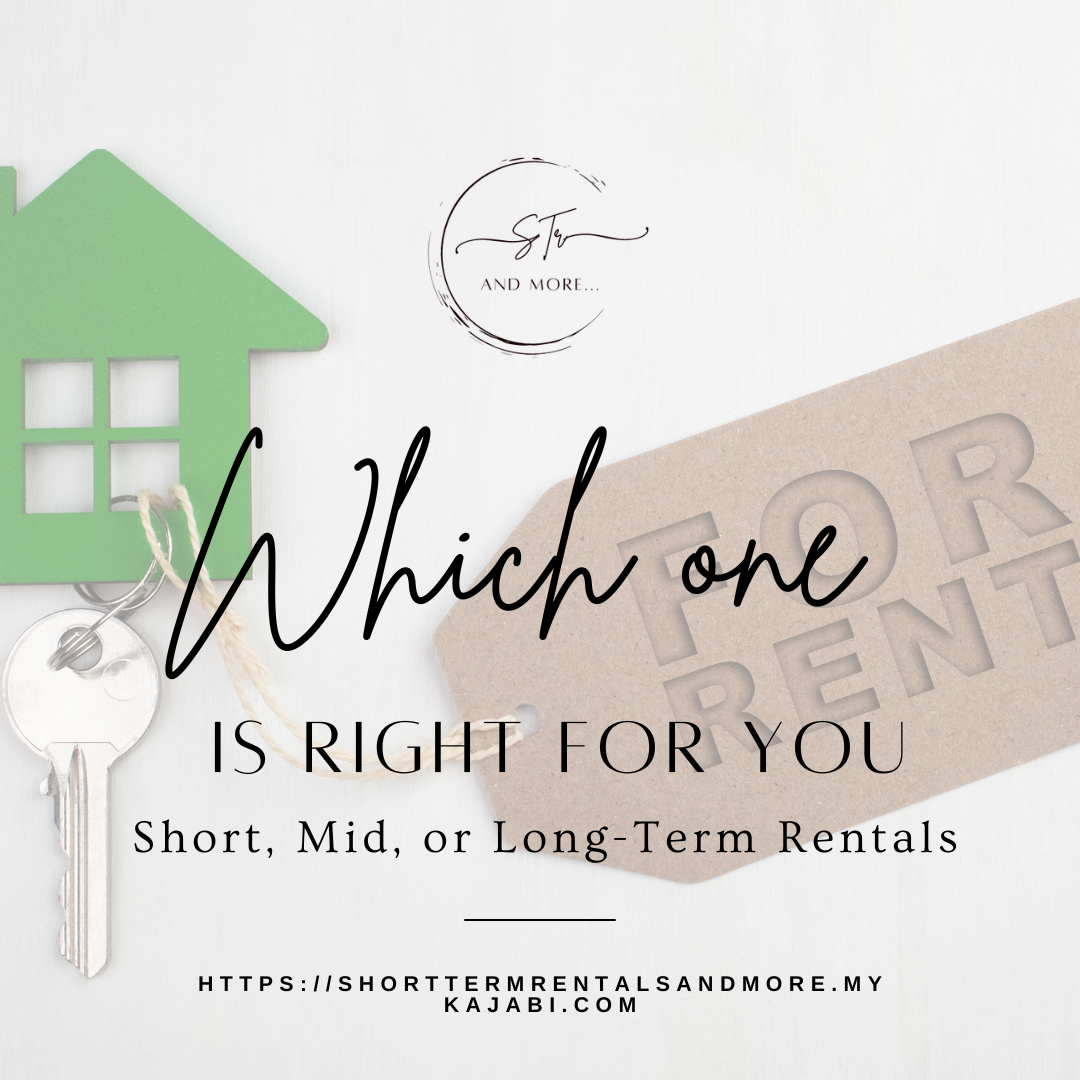Lets Talk Property Owners
If you are a property owner, there are several options available to you when it comes to renting out your property. You can choose to rent out your home for short-term rentals (i.e., vacation rentals, Airbnb’s), mid-term rentals (i.e., corporate housing) or long-term rentals (i.e., traditional leases). But which option is best for you and your business? In this blog post, we will explore the advantages and disadvantages of each rental type so that you can make an informed decision about which option is right for you.
Short-Term Rentals
Short-term rentals such as vacation homes and Airbnb’s offer a great way to earn additional income without having to commit to a long-term lease with a tenant. However, it’s important to note that these types of rentals come with some drawbacks as well. For example, you may not be able to predict exactly how much money you will make from each rental since it depends on the season and other factors such as location and availability. Additionally, short-term renters often require more upkeep; since they aren’t around for very long, they may not take the same care of the property as someone who is living there longer term would.
Mid-Term Rentals
Mid-term rentals are typically used by businesses looking for temporary housing solutions for their employees. These types of rentals usually last anywhere from one month up to six months and can provide a steady stream of income if managed correctly. One advantage of mid-term rentals is that tenants typically have similar lifestyles which makes them easier to manage—for example, they may all work at the same company or have similar interests/hobbies which means they could potentially get along better than a group of strangers living in the same space on a short term basis would be able to do so. However, mid-term rental agreements also come with their own set of challenges; managing multiple tenants with different needs can be difficult and time consuming so it’s important to carefully consider whether this type of rental is right for you before committing to it.
Long Term Rentals
Long term rental agreements such as traditional leases provide some stability financially since tenants are usually expected to stay for at least 12 months (or even longer). This means that landlords don’t have to worry about constantly finding new tenants every few months like they would with short or mid-term leases. Additionally, long term tenants tend to take better care of the property since they plan on staying there for an extended period of time; this can save landlords money in terms of repairs and maintenance costs over time. The downside is that if something does go wrong during the tenancy agreement period then it could take some time – and legal fees –to resolve the issue since landlords don’t have nearly as much flexibility when it comes to evicting long term tenants compared with what they would have when dealing with shorter tenancies.
Conclusion
Ultimately deciding between short-, mid-, or long-term rental options will depend on your individual needs and situation as well as those of potential future tenants who might rent from you down the line . There isn't one definitive answer - instead ,it's important that you weigh all pros , cons ,and financial implications before making any decisions . With proper research ,weighing up all angles ,and understanding what each type entails ,you'll be well on your way towards finding the right type of rental option for your business!
Resources
Need additional guidance? Join the Short-Term Rental & More Academy and let us help you learn how to use real-estate to earn passive income.
Shop our digital products here.

